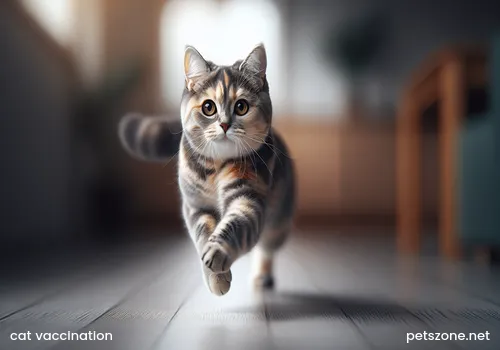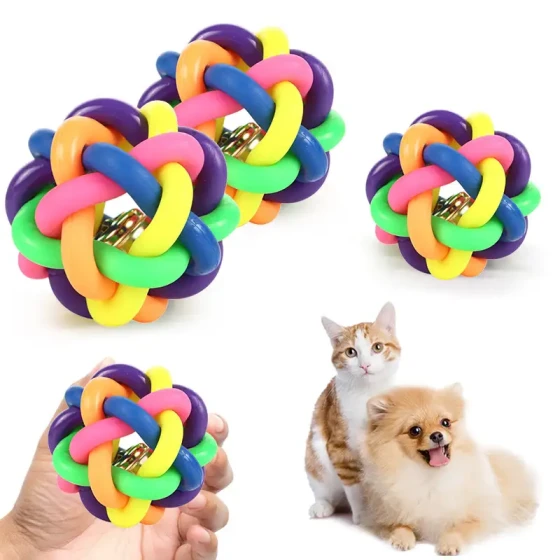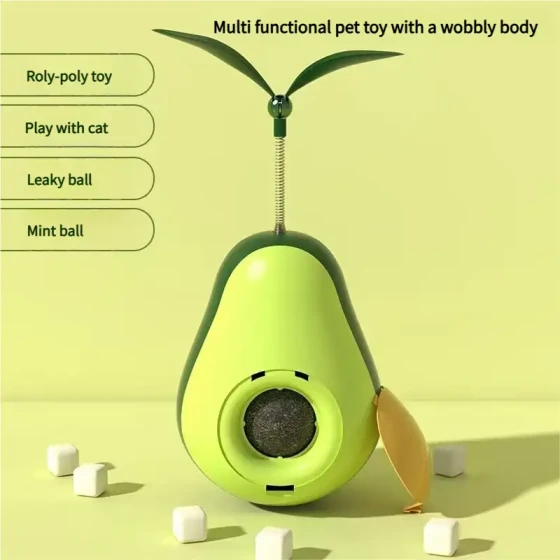Is it still in time to vaccinate an 8-month-old cat_Analysis of the best timing for kitten vaccination
For an 8-month-old cat, even if the initial kitten vaccinations were missed, it is completely still in time to get vaccinated. Vaccines can effectively protect cats from various deadly infectious diseases, such as feline panleukopenia and feline calicivirus. Although the best timing for kitten vaccination is when they are younger, starting the immunization program at any time is much better than not vaccinating at all, as it builds an important health defense for the cat.

Cat vaccination is like giving their body an "invisible armor" to resist attacks from external viruses. For an 8-month-old cat, the veterinarian will formulate a personalized vaccination plan based on its health status and living environment (whether free-roaming, contact with other animals, etc.), usually starting with core vaccines (such as the feline triple vaccine), followed by a booster shot after several weeks to ensure immunization effectiveness.
Kitten vaccination: why "the sooner the better"?
The emphasis on "the sooner the better" for kitten vaccinations is because kittens receive maternal antibodies from their mother's milk after birth, which protect them for a certain period. However, as the kitten grows, maternal antibody levels gradually decline, and the speed of decline varies between cats. When maternal antibodies drop to insufficient levels to protect the kitten but are still enough to interfere with vaccine immune response — called the "immune gap" — the kitten is at its most vulnerable state.
To cover this immune gap as much as possible and establish lasting immunity, veterinarians usually recommend the first vaccination at 6-8 weeks old, followed by booster shots every 3-4 weeks, typically requiring 2-3 doses to complete the basic immunization. This way, when maternal antibodies have completely disappeared, the kitten's immune system is already prepared to resist viruses through vaccine stimulation.
Vaccinating an 8-month-old cat still holds great significance
Even if a cat is already 8 months old and missed the routine juvenile vaccinations, getting vaccinated is still very meaningful. This can be understood as "better late than never."
- Filling the immune gap: At 8 months old, maternal antibodies in the cat’s body have long since disappeared. Without vaccines, their body has almost no resistance to common and dangerous infectious diseases like feline panleukopenia and calicivirus. Once exposed to viruses, the risk of infection is very high. Vaccination fills this "immune gap" and provides the cat with active immunity.
- Building active defense: Vaccines simulate virus infection, stimulating the cat’s immune system to produce antibodies and immune memory cells. When the cat encounters the real virus again, these "immune warriors" can quickly identify and eliminate it, protecting the cat from illness or reducing disease symptoms.
- Reducing transmission risks: Besides protecting your own cat’s health, vaccination is also a responsible behavior. If cats go outdoors or there are multiple pets at home, vaccines effectively lower the risk of infectious disease spread between pets, maintaining the entire pet community’s health. It’s like a community working together on hygiene and epidemic prevention — when everyone is safe, the whole community is safe.
Vaccination process for 8-month-old cats
For cats 8 months or older without prior vaccination, veterinarians will adopt a similar procedure to basic kitten immunization but may adjust it slightly.
- Health check: Before vaccination, the vet will perform a comprehensive physical exam — including temperature, heart rate, respiration, and mental state — to ensure the cat is healthy without fever, loss of appetite, vomiting, diarrhea, or other symptoms. Only healthy cats can mount a proper immune response to the vaccine. If the cat shows illness signs, recovery should be prioritized before vaccination.
- Deworming: Many vets recommend internal and external deworming before vaccination. Parasites affect nutritional absorption and overall health, possibly influencing vaccine effectiveness. It’s like "clearing weeds from the battlefield so soldiers can train better."
- Vaccine selection:
- Core vaccines: Regardless of living environment, core vaccines are strongly recommended. For cats, core vaccines typically protect against feline panleukopenia (feline distemper), feline calicivirus, and feline herpesvirus infection — commonly called the "feline triple vaccine." These three diseases are highly contagious and seriously threaten cat health.
- Non-core vaccines: Depending on the cat’s lifestyle and exposure risks, vets may recommend non-core vaccines such as rabies and feline leukemia virus vaccines.
- Rabies vaccine: In China, rabies vaccination is legally mandated for cats regardless of outdoor status. This is not only for the cat’s safety but also for public health security.
- Feline leukemia virus vaccine: Suitable for cats that regularly go outdoors, have frequent contact with other cats, or live in multi-cat households.
- Vaccination procedure:
- Generally, a first dose of the feline triple vaccine is given, followed by a booster shot after 3-4 weeks (specific intervals should follow vet advice).
- Rabies vaccine is usually administered separately after completion of the triple vaccine basic immunization.
- After basic immunization, annual booster shots are needed to maintain effective immune protection.
Post-vaccination precautions
After vaccination, cats may experience mild reactions. Owners should stay calm but observe carefully.
- Depression, decreased appetite: Within 1-2 days after vaccination, cats may appear quieter with slightly reduced appetite. This is a normal immune response, similar to humans feeling tired after vaccination.
- Swelling or pain at injection site: Local swelling or mild pain may occur at the injection site, which usually subsides within a few days on its own.
- Avoid bathing and going outside: It is recommended to avoid bathing cats within a week after vaccination to prevent colds that can affect immune response. Also, reduce outdoor activity and contact with other pets to lower infection risk.
- Watch for allergic reactions: Rarely, cats may have allergic reactions to vaccines, such as facial swelling, difficulty breathing, itching, vomiting, or diarrhea. If these severe symptoms occur, take the cat immediately to the pet hospital.
Frequently Asked Questions
- At what age can cats be vaccinated?
It is generally recommended that kittens receive their first vaccination at 6-8 weeks of age. - How many vaccine doses do cats need?
For kittens or adult cats getting vaccinated for the first time, the feline triple vaccine usually requires 2-3 doses for basic immunization. Rabies vaccine usually requires 1 dose. Annual booster shots are needed afterwards. - Can a cat go outside immediately after vaccination?
It is not recommended to go outside immediately. After vaccination, cats need a period (usually 7-14 days) to develop sufficient protective antibodies. During this time, their resistance may be relatively lower, so minimize outdoor activities and contact with other animals to reduce infection risk. - Are there side effects of vaccines?
Vaccines are safe, but like all medications, side effects may occur. Common side effects include mild depression, decreased appetite, and swelling or pain at the injection site. Allergic reactions are very rare. - What are the consequences of not vaccinating?
Unvaccinated cats have no resistance to common infectious diseases such as feline panleukopenia, calicivirus, and rabies. Once exposed, infection risk is very high. These diseases are often severe, costly to treat, and can be fatal.
Summary
Although an 8-month-old cat is no longer a kitten, vaccinating it is still a key step in protecting its health. It is like reinforcing a defense in our home — even if not done at the initial build, any time is better to strengthen it. Be sure to take your cat to a reputable pet hospital, where professional veterinarians will develop a suitable vaccination plan based on the cat’s specific condition. Scientific vaccination is essential for a cat’s long, healthy life and is a responsibility all cat owners should fulfill. Let’s help our cats grow healthy and happy, enjoying the wonderful moments with us!
References
- World Small Animal Veterinary Association (WSAVA) Vaccination Guidelines
- China Ministry of Agriculture and Rural Affairs "Animal Rabies Immunization Technical Specifications"
- Clinical practice summaries from major reputable pet hospitals and veterinarians





